The International Baccalaureate (IB) is a globally recognized educational framework designed to develop well-rounded, inquiring, knowledgeable, and compassionate learners. Founded in 1968 and headquartered in Geneva, Switzerland, the program offers a challenging and comprehensive curriculum that focuses not only on academic excellence but also on personal growth, critical thinking, and intercultural understanding.
This program is offered in thousands of schools worldwide, both public and private, and is divided into four main programs catering to students aged 3 to 19: the Primary Years Programme (PYP), the Middle Years Programme (MYP), the Diploma Programme (DP), and the Career-related Programme (CP). Its emphasis on holistic education, research-based learning, and community service makes it a preferred choice for students seeking higher education at prestigious universities worldwide.
It is respected for its rigorous assessment methods and commitment to preparing students to thrive in a rapidly changing, interconnected world. By nurturing intellectual curiosity and global citizenship, the program helps students become adaptable leaders ready to face future challenges.
What is International Baccalaureate?
The International Baccalaureate is an internationally recognized education system that provides a well-rounded, challenging, and inquiry-based learning experience for students aged 3 to 19. It is designed to foster academic excellence, personal development, and a global perspective, enabling students to think critically, communicate effectively, and understand different cultures.
Unlike traditional curricula that focus mainly on subject knowledge, This program emphasizes holistic learning, combining academics with creativity, action, service (CAS), and research skills. The program’s structure encourages students to make connections between different subjects, apply their knowledge to real-world situations, and become lifelong learners.
Recognized by top universities worldwide, the program prepares students not only for higher education but also for becoming responsible, open-minded global citizens.
The Four IB Programs
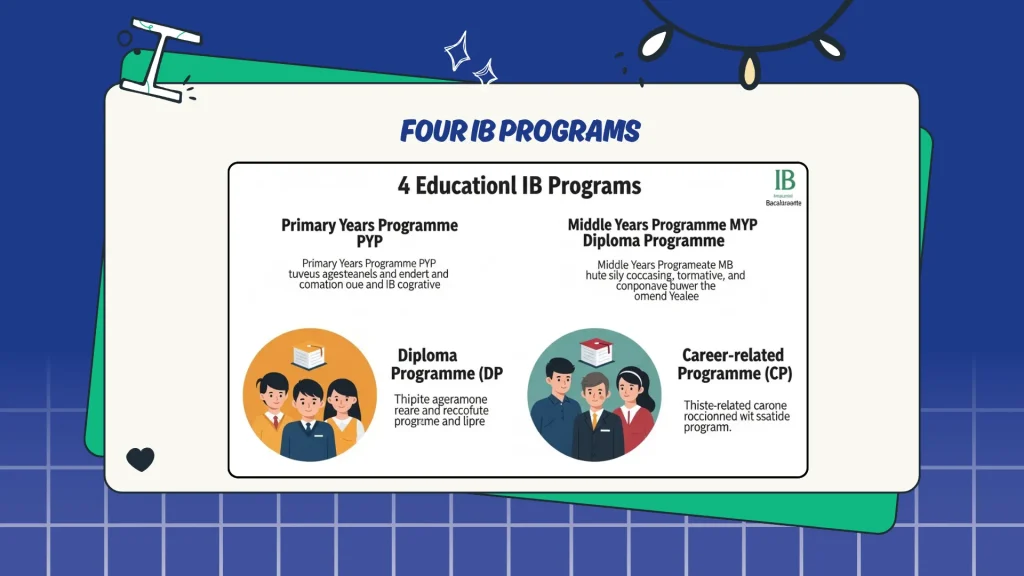
The International Baccalaureate offers four unique programs designed for students at different stages of their education. Each program focuses on developing intellectual, personal, emotional, and social skills, while encouraging curiosity and a love for learning.
1. Primary Years Programme (PYP); Ages 3–12
The PYP is designed for young learners and emphasizes inquiry-based learning, where students explore concepts through real-world connections and experiences. It focuses on developing fundamental skills in language, mathematics, science, social studies, arts, and physical education, while fostering curiosity, independence, and global awareness.
2. Middle Years Programme (MYP); Ages 11–16
The MYP bridges the gap between primary and advanced studies. It encourages students to make practical connections between their studies and the world around them. The program includes eight subject groups and incorporates interdisciplinary learning, community service, and project-based assessments.
3. Diploma Programme (DP); Ages 16–19
The DP is one of the most recognized pre-university qualifications globally. It offers a balanced curriculum of six subject groups, alongside three core components: Theory of Knowledge (TOK), Extended Essay (EE), and Creativity, Activity, Service (CAS). The DP prepares students for higher education through academic rigor, research skills, and critical thinking.
4. Career-related Programme (CP); Ages 16–19
The CP is designed for students who wish to focus on career-related learning while still benefiting from the academic challenge of IB. It combines the courses with professional or technical studies, along with a core of personal and professional skills, language development, and a reflective project.
Core Components of the Diploma Programme (DP)
The Diploma Programme (DP) has three core components that go beyond subject knowledge, focusing on personal growth, research, and global engagement. These components are designed to develop well-rounded, reflective, and socially responsible individuals.
1. Theory of Knowledge (TOK)
- Purpose: Encourages students to reflect on the nature of knowledge, how it is constructed, and how it applies in different contexts.
- Key Focus: Critical thinking, questioning assumptions, and making connections between different areas of knowledge.
- Assessment: An oral presentation and a 1,600-word essay on a prescribed title.
2. Extended Essay (EE)
- Purpose: A 4,000-word independent research paper that allows students to investigate a topic of interest in depth.
- Key Focus: Research, analysis, academic writing, and time management skills.
- Assessment: Externally assessed by This program examiners; contributes to the final diploma score.
3. Creativity, Activity, Service (CAS)
- Purpose: Encourages students to engage in artistic, physical, and community service experiences alongside academic studies.
- Key Focus: Personal growth, teamwork, leadership, and civic responsibility.
- Assessment: Not graded, but students must complete and reflect on their CAS experiences to receive the diploma.
Benefits of IB Education
The International Baccalaureate offers a distinctive approach to learning that equips students with academic strength, personal values, and global awareness.
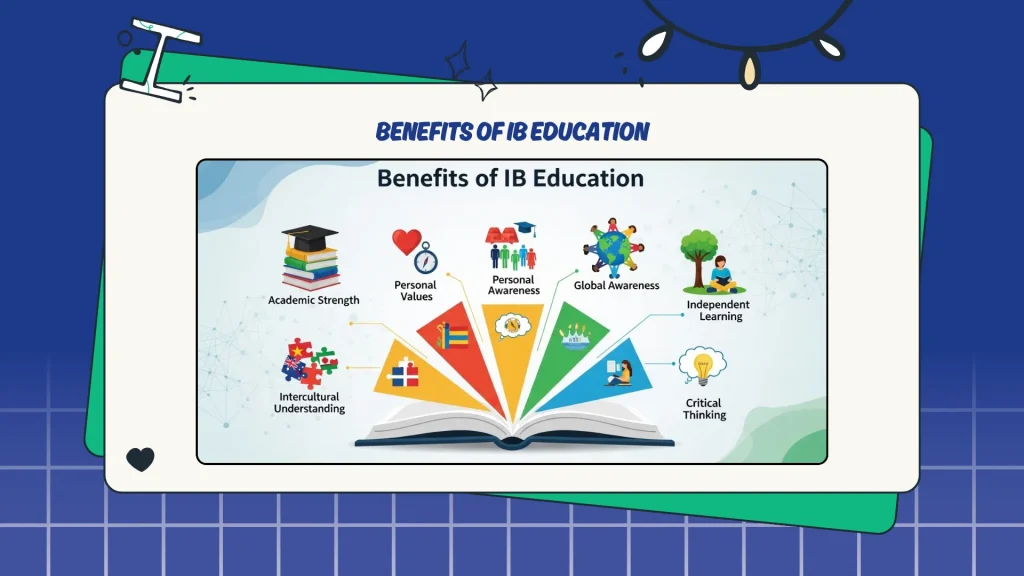
Its programs are designed to nurture critical thinkers, problem-solvers, and compassionate leaders who can adapt to an ever-changing world. Here are some of the key benefits:
1. Globally Recognized Qualification
The Course is respected by universities and employers worldwide, giving students an edge in admissions and career opportunities.
2. Focus on Critical Thinking and Problem-Solving
This program students learn to question, analyze, and apply knowledge in real-world contexts, developing skills that go beyond memorization.
3. Holistic Personal Development
Through core elements like Creativity, Activity, Service (CAS), students grow in leadership, teamwork, creativity, and community involvement.
4. Strong Research and Writing Skills
Projects like the Extended Essay prepare students for the academic demands of higher education by building independent research and academic writing abilities.
5. Interdisciplinary and Inquiry-Based Learning
IB encourages making connections across subjects, helping students see the bigger picture and understand complex issues.
6. Multilingual Proficiency and Cultural Awareness
Language learning and global perspectives in the curriculum promote intercultural understanding and communication skills.
7. Preparation for University and Beyond
IB graduates are often more adaptable, self-disciplined, and confident in managing heavy workloads, skills vital for success in higher education and professional life.
8. Emphasis on Ethical and Global Citizenship
Students are encouraged to act responsibly, think ethically, and engage with local and global communities to create positive change.
Grading System in the International Baccalaureate
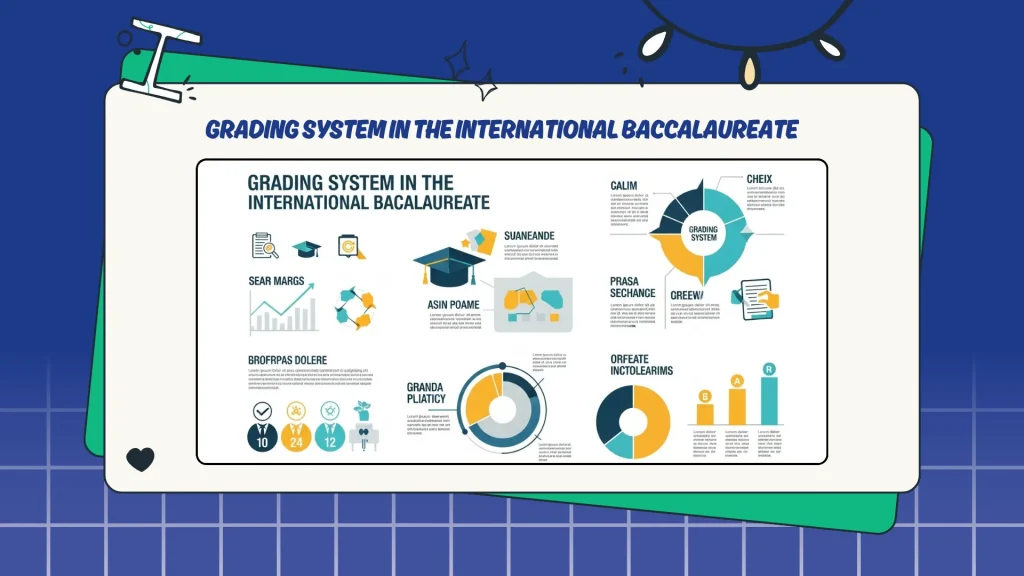
The grading system is designed to fairly assess students’ knowledge, skills, and understanding across its programs, especially the Diploma Programme (DP). It uses a combination of external examinations and internal assessments to ensure accuracy and consistency worldwide.
1. Subject Grades
Each of the six academic subjects is graded on a scale of 1 to 7, where:
- 7 = Excellent
- 6 = Very Good
- 5 = Good
- 4 = Satisfactory
- 3 = Mediocre
- 2 = Poor
- 1 = Very Poor
2. Core Components Points
- The Theory of Knowledge (TOK) and Extended Essay (EE) are assessed together and can award a maximum of 3 bonus points.
- Creativity, Activity, Service (CAS) is not graded, but completion is mandatory to receive the diploma.
3. Final Score
Maximum possible score: 45 points
- 42 points from six subjects (6 × 7 points)
- 3 bonus points from TOK and EE
A diploma is awarded if the student:
- Scores at least 24 points overall
- Meets specific requirements in each subject group and core component
- Completes CAS successfully
4. Grade Boundaries and Assessment
- Assessments include written exams, oral presentations, coursework, projects, and lab work (depending on the subject).
- External exams are set and marked by IB examiners, while internal assessments are graded by teachers and moderated by IB.
IB vs. Other Education Systems which is better
The International Baccalaureate stands out from many national and international education systems due to its holistic, inquiry-based, and globally focused approach. While traditional systems often emphasize content knowledge and standardized testing, the program aims to balance academic excellence with personal growth, creativity, and global citizenship.
1. Curriculum Approach
- IB: Interdisciplinary, inquiry-driven learning that connects subjects and real-world issues.
- Other Systems (e.g., Cambridge, American, National Boards): Often subject-specific, with less emphasis on cross-disciplinary connections.
2. Global Recognition
- IB: Accepted by top universities worldwide; valued for producing independent, well-rounded students.
- Other Systems: Recognition varies; some are highly regarded locally or regionally but may require equivalence certification abroad.
3. Assessment Style
- IB: Combination of internal assessments, projects, oral presentations, and externally marked exams.
- Other Systems: Often rely heavily on final written exams; coursework may have less weight.
4. Skills Development
- IB: Emphasizes critical thinking, research, collaboration, creativity, and intercultural understanding.
- Other Systems: May focus more on rote learning and exam preparation.
5. Personal Development
- IB: Includes Creativity, Activity, Service (CAS) to encourage leadership, community engagement, and personal growth.
- Other Systems: Extracurricular involvement depends on the school; not always a core requirement.
6. Flexibility & Subject Choice
- IB: Offers a balance between core requirements and student choice in subjects and levels (Higher Level & Standard Level).
- Other Systems: May have more rigid subject combinations depending on the board or country.
Global Recognition of the International Baccalaureate
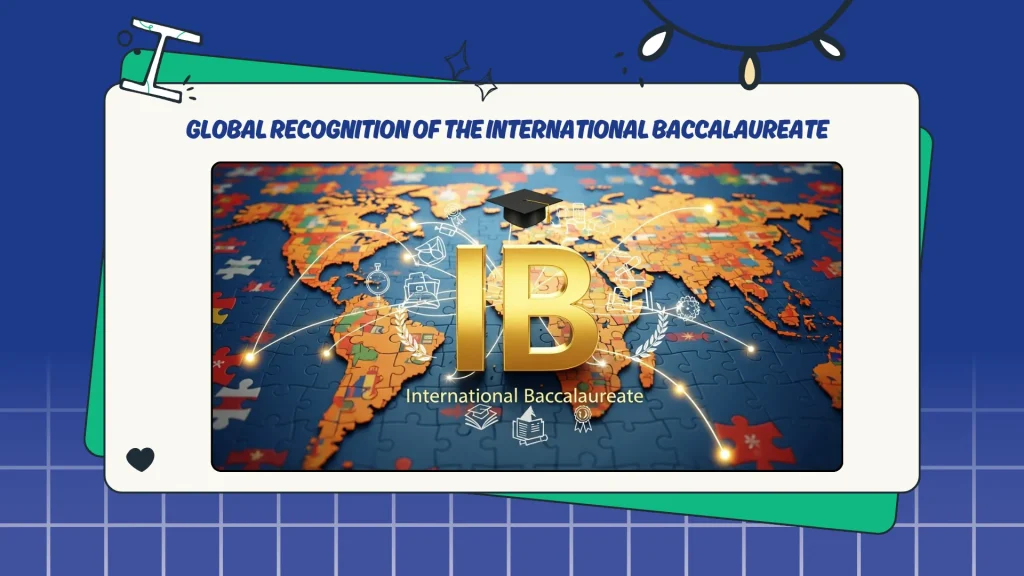
The International Baccalaureate is one of the most widely respected and recognized education programs worldwide. Its rigorous curriculum and holistic approach have earned it a strong reputation among universities, employers, and educational institutions across the globe.
Key Points on IB’s Global Recognition:
Here are some key points:
Universities Worldwide Value IB:
Prestigious universities in the US, UK, Canada, Australia, Europe, and Asia actively recruit and often give special consideration to The Diploma graduates because of their strong academic preparation, critical thinking skills, and research experience.
University Credit and Advanced Placement:
Many universities offer course credits, advanced placement, or entry scholarships to students with high scores, potentially allowing them to complete degrees faster or with more flexibility.
International Portability:
Because the curriculum is consistent globally, students can transfer between countries or schools without major disruption, making it ideal for internationally mobile families.
Recognition by Governments and Education Boards:
Several national education authorities officially recognize the Diploma as equivalent to their secondary education qualifications, facilitating smooth university admissions.
Strong Alumni Network and Global Community:
the initiative students join a worldwide community committed to lifelong learning and global citizenship, connecting with peers across cultures and countries.
International Baccalaureate in Pakistan
The International Baccalaureate has steadily gained popularity in Pakistan over the last two decades, with more schools adopting its globally recognized curriculum to meet the needs of students aiming for international-standard education.
It is offered by select private and international schools in major cities like Karachi, Lahore, and Islamabad, catering to both Pakistani and expatriate families.
1. Availability of IB Programs in Pakistan
Several leading schools in Pakistan are authorized to offer one or more the programs, such as:
- Primary Years Programme (PYP): For early childhood and primary students
- Middle Years Programme (MYP): For lower secondary students
- Diploma Programme (DP): For pre-university students
- Career-related Programme (CP): Offered in very few institutions
2. Schools in Major Cities
Some well-known IB-authorized schools in Pakistan include:
- Karachi: International Grammar School & College, The Lyceum, Karachi Grammar School (selected programs).
- Lahore: Lahore Grammar School (International IB campuses), International Grammar School & College Lahore
- Islamabad: International Grammar School & College Islamabad, Roots International Schools & Colleges
3. Recognition in Pakistan
- The Diploma is recognized by the Inter Board Committee of Chairmen (IBCC) for university admissions in Pakistan.
- The graduates Program often need to obtain equivalence certificates from IBCC to convert their IB scores into Pakistan’s grading system for local university applications.
4. Popularity and Career Pathways
- IB is most popular among students aiming for foreign universities in the US, UK, Canada, Australia, and Europe.
- However, many Pakistani students also use the This program qualification to enter top local universities after securing IBCC equivalence.
Conclusion
The International Baccalaureate is not just an education system; it is a life-shaping experience that inspires students to think deeply, act responsibly, and live with purpose. Its philosophy centers on creating globally aware, compassionate, and skilled individuals who can adapt to the demands of an interconnected world.
From its Primary Years Programme (PYP) to its Diploma Programme (DP) and Career-related Programme (CP), This program builds a foundation of intellectual curiosity, ethical responsibility, and independent thinking. It challenges students to go beyond memorization, encouraging them to explore ideas, solve problems creatively, and communicate effectively.
One of the program greatest strengths lies in its balance between academic rigor and personal growth. Through elements like the Theory of Knowledge (TOK), Extended Essay (EE), and Creativity, Activity, Service (CAS), students learn not only how to excel in exams but also how to contribute meaningfully to their communities and the wider world.
In Pakistan, IB is increasingly recognized as a premium education option, offering IBCC equivalence for smooth transitions to local universities while also providing a strong competitive edge for admissions abroad. Its emphasis on international-mindedness, coupled with a robust curriculum, ensures that This program graduates are not just prepared for university, they are prepared for life.
For students and parents seeking a program that blends academic excellence with real-world readiness, the International Baccalaureate remains a gold standard. It is an investment in knowledge, character, and a future without boundaries, a passport to success in the global arena.
FAQs About International Baccalaureate
What is the International Baccalaureate (IB)?
The International Baccalaureate is a globally recognized education system for students aged 3–19. It focuses on academic excellence, critical thinking, personal growth, and intercultural understanding. The programs are designed to prepare students for both university studies and life beyond academics.
How many programs does IB offer?
This Program offers four programs: the Primary Years Programme (PYP), Middle Years Programme (MYP), Diploma Programme (DP), and Career-related Programme (CP). These cover different age ranges and learning needs, making This program suitable for students at various stages of their education.
Is IB more difficult than O/A Levels?
IB is considered more comprehensive because it requires students to study six subjects along with core components like the Extended Essay, Theory of Knowledge, and Creativity, Activity, Service (CAS). In contrast, O Level and A Levels allow specialization in fewer subjects, making broader but more demanding.
Is IB recognized in Pakistan?
Yes, IB is recognized by universities in Pakistan. However, students must obtain IBCC equivalence to match their the program results with the local education system, especially when applying to medical, engineering, or public universities.
What is the grading system in IB?
IB subjects are graded on a scale from 1 (lowest) to 7 (highest). Students can earn up to 3 additional points through the Extended Essay and Theory of Knowledge, making the maximum possible score 45 points. A minimum of 24 points is required to pass.
Can IB students apply to universities abroad?
Absolutely. IB is accepted by top universities worldwide, including institutions in the US, UK, Australia, Canada, and Europe. In many cases, high scores can also earn students university credits or advanced placement.
Does IB focus only on academics?
No, IB is a holistic program that emphasizes personal growth alongside academic achievement. Students engage in creative projects, sports, community service, and leadership activities, ensuring they develop a well-rounded skill set.
How long does the IB Diploma Programme take?
The IB Diploma Programme is a two-year course typically taken by students aged 16–19. It is designed to prepare them for higher education and includes academic studies, research work, and extracurricular commitments.
Can IB students study medicine or engineering?
Yes, This program students can pursue medicine, engineering, or other professional fields as long as they choose the required subjects, such as biology, chemistry, physics, or mathematics, and meet the entry requirements of their chosen universities.
Where can students study IB in Pakistan?
This program is offered in various international and private schools across major cities like Karachi, Lahore, and Islamabad. These schools provide different this programs based on student age groups, from primary to pre-university levels.


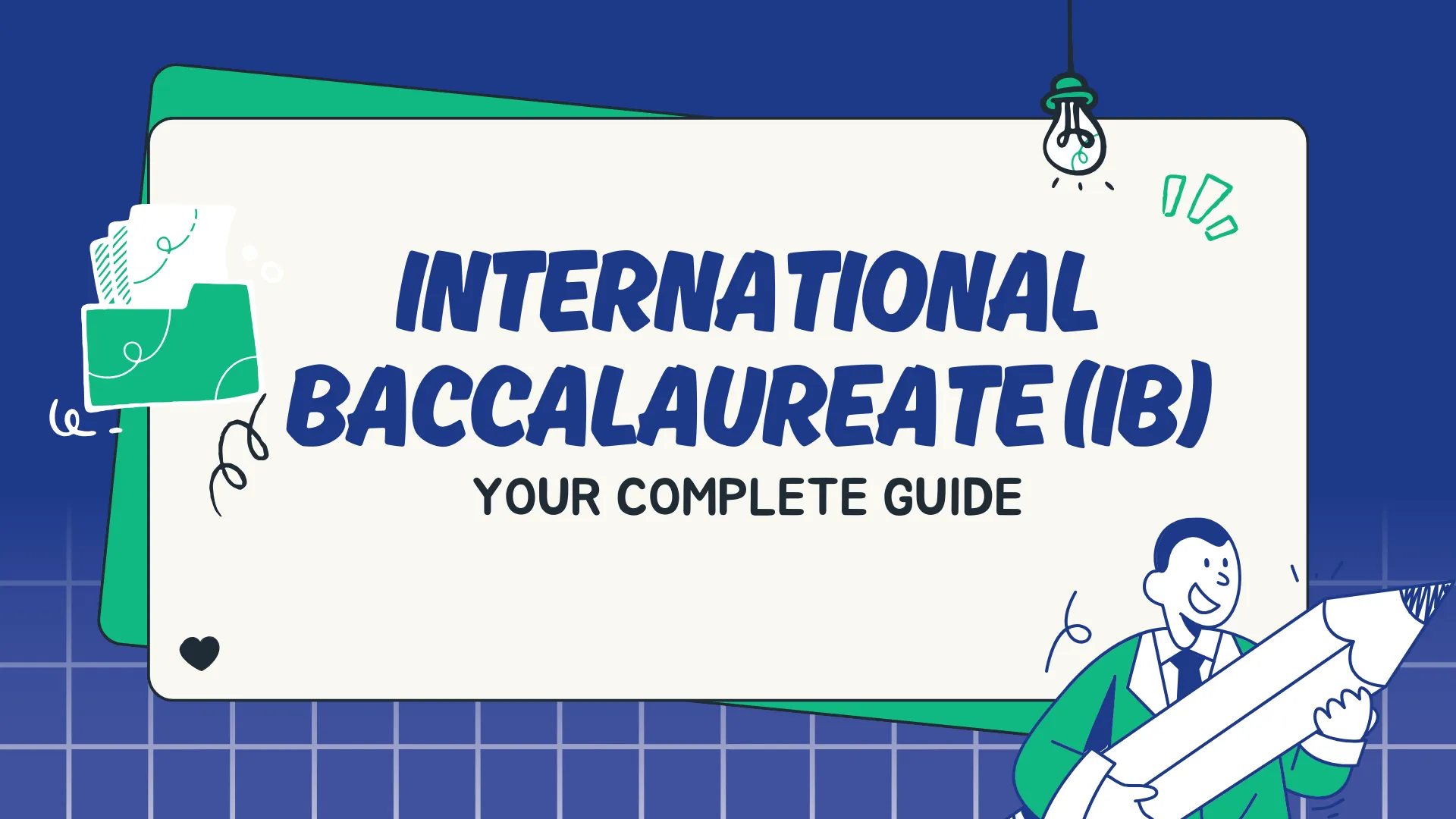


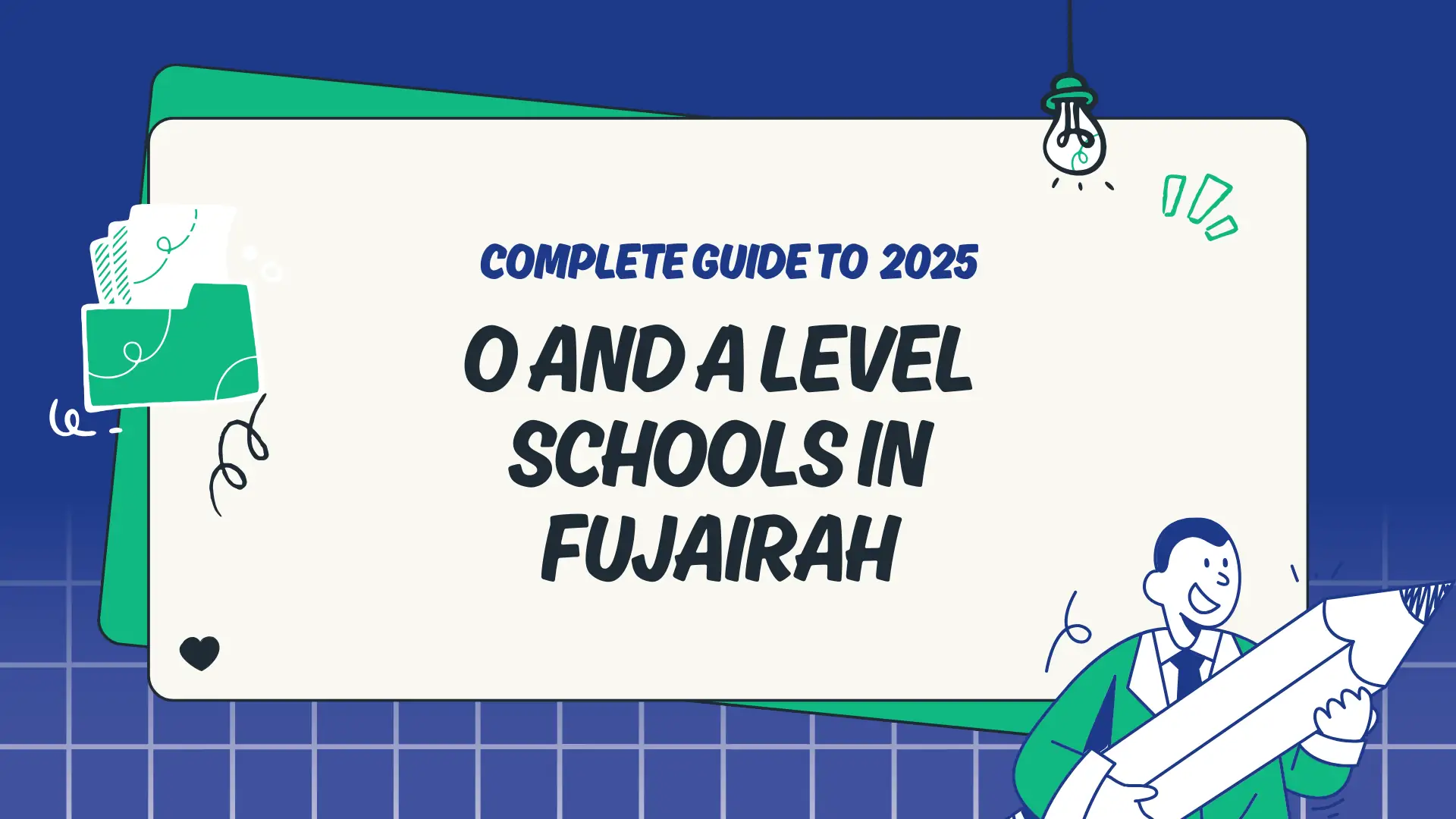

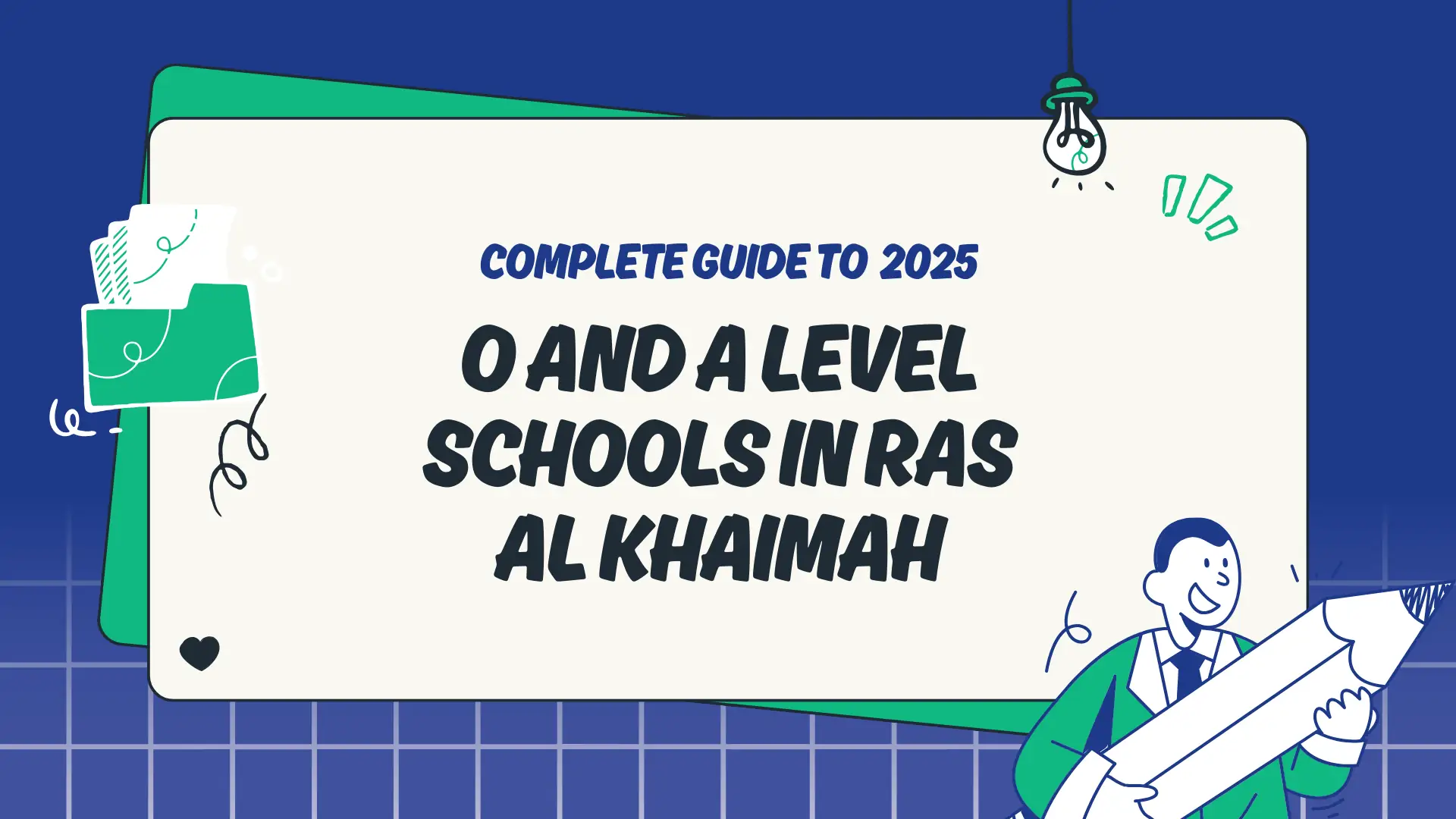
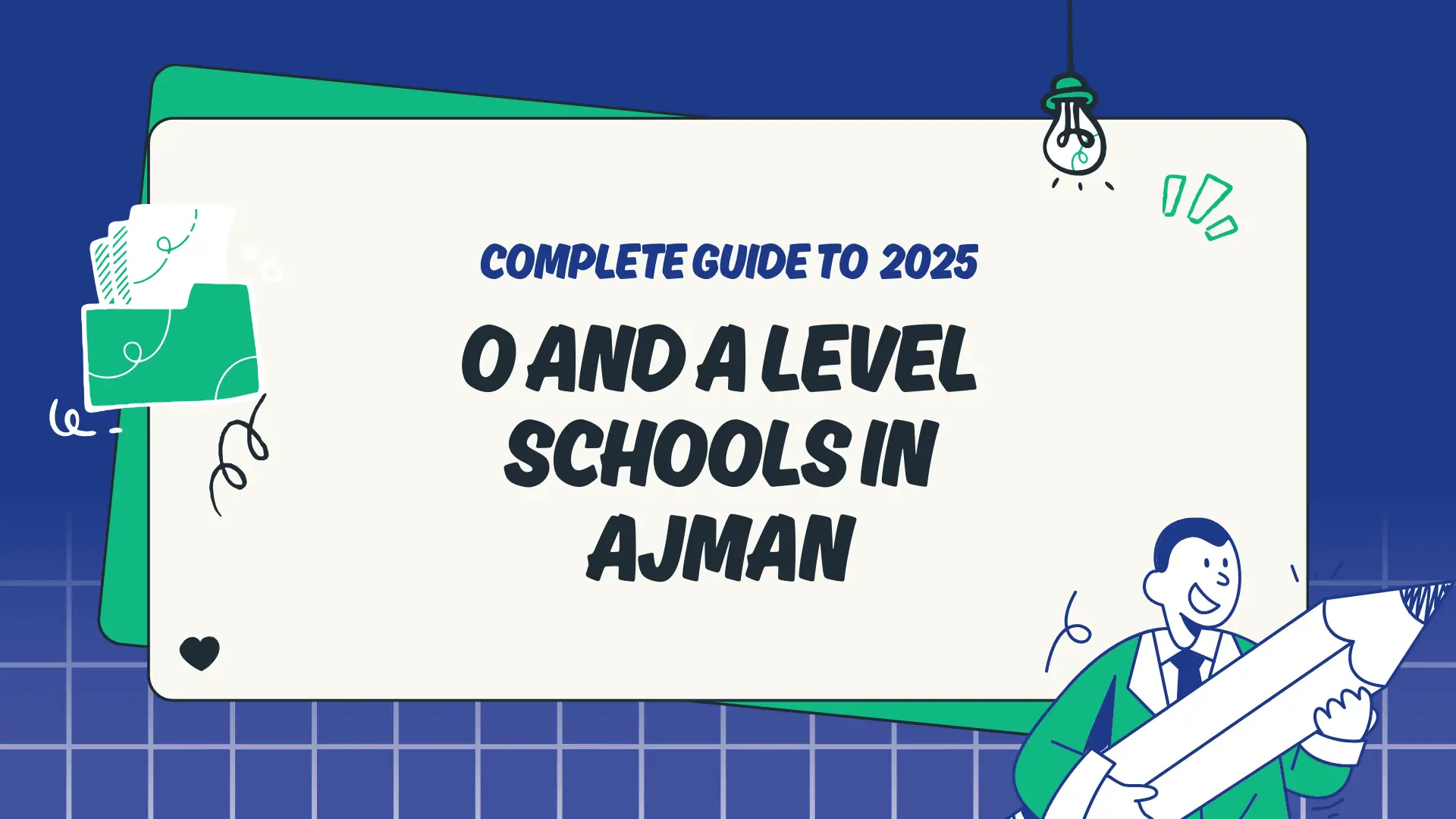
Leave a comment